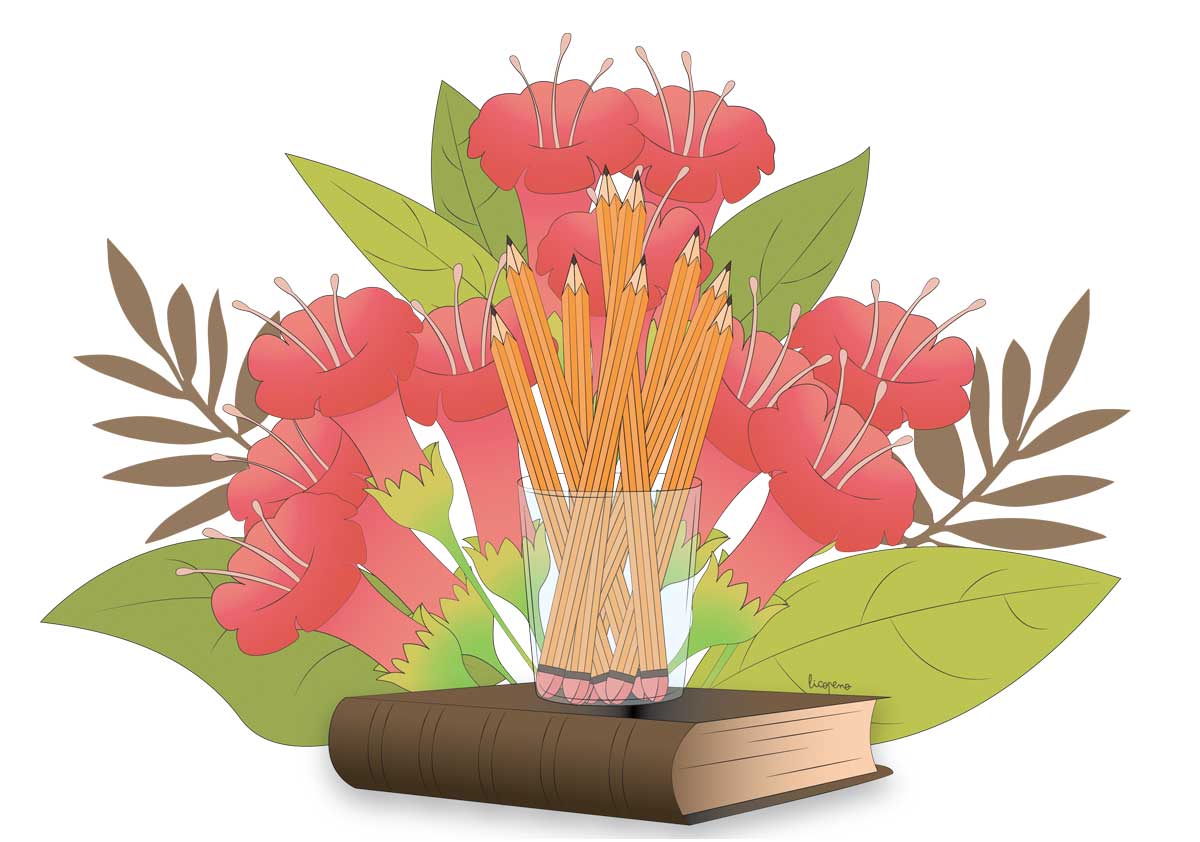






Image: original art by Catalina Naranjo (IG @licopeno)
BY GABRIELA WIENER ABOUT LA CANTUTA
All enforced disappearances bear the ominous stamp of those who are truly responsible. Although they have not moved from their swivel chairs, their fingers are stained with blood and dirt; although they have not opened their mouths, the putrid breath and the murmur of rats that we have felt since then, are theirs. They murder in the dark from their beds, they bury in the shade while talking on their cell phones, they disinter during a business dinner, they bury them again on a little vacation trip.
From Chile to Argentina, from Peru to Mexico, in the past and in the present of our common wound, in a time painfully mythical but real, the culprits move bodies in cardboard boxes, in Leche Gloria boxes, for instance, as when they moved the dismembered bodies of nine students and a professor from La Cantuta University, in Peru.
They crush bones, they burn clothes, but the sea of memory always returns them in the form of a key, a piece of cloth. Because the fools try to silence what cannot be kept quiet, to hide what cannot be hidden.
To the children, the siblings, the fathers, the mothers, the families who search everywhere and for all eternity, if necessary, we thank them so much, so much, as much Raída Condor, Carmen Amaro or Gisela Ortiz, as to the mothers and sisters of all, who did not stop asking for justice.
Throughout this time, the Center for Justice and International Law – CEJIL – as it has done in numerous cases of violations of human rights with impunity or in search of justice in Latin America, accompanied the families of the victims and represented the case of Cantuta before the Inter-American Court of Human Rights in the search for justice and truth. And they have continued there for all these years, accompanying, always alert with the constant attempts to pardon Alberto Fujimori. They continue working, this organization that is 30 years old, they continue to fulfill a key role today given that human rights continue to be threatened globally.
Once one was in a desert, the Chilean desert, the Atacama desert. There a group of women, even today, dig in search of the bones of their loved ones, there the Pinochet dictatorship set up concentration camps and buried the bodies of hundreds of political prisoners. A perfect place to bury, according to a fool, of course, because the enormous dryness of that area mummifies human bodies. When the fools found out, they ran to disinter and once again move and bury and grind and burn.
That desert is also the largest astronomical observatory in the world; people search, looking at the earth or at the sky with a prayer, but all those who seek, seek the same vestiges, answers, constellations of truths.
There alone in that desert, but also in La Cantuta, in that void, that wasteland, in that void that is not filled, in the pain for that person who does not appear, you can touch the stars with your hand.
…..
Interested in supporting our work? Donate to CEJIL here:
Help us continue this critical and urgent work with a donation!
DONATE NOW